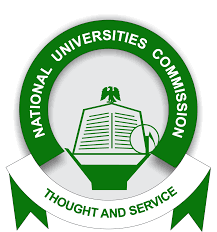Officials from the London Academy Business School and University of Sunderland are currently seeking approval from the National Universities Commission to run degree programmes in Nigeria.
A delegation from the University of Sunderland, led by Dr. Derek Watson, confirmed this after a meeting held in Abuja with the acting Executive Secretary, NUC, Chris Maiyaki, according to a statement released on Thursday.
Watson, an associate professor from the faculty of business law and tourism, assured that students in Nigeria would have the same academic standards as their counterparts in the United Kingdom, while the management, at the same time, promised to respect the environment and guidelines from the NUC.
He said, “The meeting with the executive secretary was very productive. The University of Sunderland has over 30 years of experience.
“What we have agreed on today is the criticality of following the compliance procedures. In addition to that, we would source credible academics to deliver our programmes from LABS who are qualified teachers and also practicing consultants. The students will get the same experience as those students studying in England.”
President/Director of Studies, London Academy Business School, Dr. Larry Jones-Esan, explained that the visit to NUC was to get the nod to run programmes in Nigeria.
He said, “The meeting with the NUC today is for us to get the recognition that we are allowed to run the Sunderland courses in Nigeria. So, we do not need the NUC accreditation, what we need is recognition. That is very important because if we run any course in Nigeria without them recognising it, that degree is useless and they cannot do NYSC, so we do not want that to be the case.
“So for us to do that, we have to get their permission first before we go out there and start recruiting students. Otherwise, we will be shooting ourselves in the foot. If they come here and say you are doing something illegal, you will pay a fine and before you get out of that, it will be too much.”
He stated further, “So what we have done is that we bring those people in and come in. Myself as the CEO of the London Academy Business School, make sure that we have them aware of what we are doing.
“Today is a very important day for the London Academy Business School in partnership with the University of Sunderland. We met with the executive secretary of the National University Commission and discussions went as planned, making sure that we do things right.
“One thing that came out very clear is that they want people to work with them but work in a way that they respect the authority, and respect the system and the environment.
“So we are going to make sure that everything we do follows the guidelines. We have very beautiful guidelines but if you fail to follow them, you might run into trouble. If two million people apply for university admissions every year in Nigeria and only seven hundred thousand are getting a place, that is a problem and that is a challenge. They want to solve that problem and we think we have come at the right time.
“We thank the delegates from the University of Sunderland working with the London Academy Business School in making sure that this gives results as quickly as possible.”
Earlier, the team visited the Nigerian Public Service Institute along Kubwa Road, Abuja, which is going to serve as the study centre and they were received by the administrator and Chief Executive Officer of the institute, Abdul-Ganiyu Obatayinbo.
The administrator said the environment was far better than what the University of Sunderland has in the UK, adding that the institute was saddled with the responsibility of building the capacity of public/civil servants.
He said that the institute has a 500-seat auditorium, 12 different halls of 30 seater capacity each, hostels with 202 bedrooms, a hospital, security quarters, a sports complex, entrepreneurship centre among other facilities, that would make teaching and learning conducive.
Some of the courses to be offered at the undergraduate level include computer science, business and management, and network system engineering, among others, while business administration, international business management, education leadership, among others, will be offered at the master’s level.

























